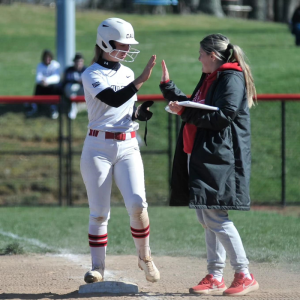Panel discusses tattoos in today’s society
As members of society embrace body art, will employers follow?
September 25, 2015
After an introduction about tattoos origins and the perceptions and connotations that accompany body ink in today’s society, Jerron Corley, a panelist on the Sociology of Deviance Club presentation on Tattoos and Society, asked the audience a philosophical question.
“Are you going to base personal judgments off of tattoos?”
The panel, which also featured Brendan Lenning, Karee Hudock, Natalie Barrick, and Taylor Dunn, began the presentation by showing two images side by side. On the left was a man whose arms, legs and other visible body parts were sporting tattoos. On the right was the same man, only his tattoos were covered with a lab coat and from his neck hung a stethoscope.
These pictures hoped to expose some of the biases that still exist in today’s society and eliminate tattoo stereotypes. The picture was followed by a brief explanation as to why tattoos have such negative connotations attached to them and are often discouraged.
According to the panel, tattoos suffer from the fate of death by association. Tattoos were originally used as representation of being a part of a biker gang, being a prisoner, or a drug abuser. Also, major religions such as Christianity and Judaism have denounced tattoos and forbid them within their religion. Thus, tattoos have made their way through generations misrepresenting those who choose to get them as similar to gang members, criminals, and drug users.
However, as Corley mentioned, today’s society is beginning to be more accepting of tattoos and by and large don’t view them as a way of marking a bad person.
Not only that, but society has begun to use tattoos in positive manners such as forms of self-expression, ways of honoring deceased family members, and a means of showing individuality.
Today’s society has shown a dramatic increase in those who have tattoos. Tattoos have now become part of mainstream culture. In fact, according to the panel, 1 in 5 people have tattoos and 85 percent of people who get a tattoo don’t regret it.
Karee Hudock said these trends have made the tattoo industry the 6th fastest growing retail business. Additionally, as the business has grown, tattoo artists have gained recognition for their work through reality shows such as LA Ink and Ink Master.
So, besides the fact getting a tattoo is now considered trendy, why do college studnets get tattoos? Taylor Dunn, who has multiple tattoos, cites the most common reasons are for “self-expression, the meaning behind the tattoo, and, most surprisingly, an “addiction” to getting tatted.
According to Dunn, much like exercising, the needle on the skin can release endorphins. Some people develop an addiction to that release and, as Dunn put it, “itch for another.” After giving her presentation, Taylor proceeded to cross the room, lie down on a tattoo bed, and was tattooed live by Jeremy Plance from the Tattoo Zone.
The panel then turned the discussion over to the audience, with a man in attendance supporting the premise the art of tattooing is becoming more commonplace. Multiple audience members credited the growing acceptance of tattoos to the new generation’s progressive attitudes, appreciativeness of self-expression, and overall social acceptance.
One older audience member cautioned that with the increasing popularity of tattoos, the youth must be warned not to do it “just because your friends are doing it.”
However, despite the emergence of tattoos in society, body art is still frowned upon in the workplace. So, will we see a day where that changes? Corley answered that employers are becoming more lenient, particularly with tattoos that are not visible.
Hudock mentioned that the polls are showing a dramatic change in acceptance. “It’s normal now,” she said. Dunn also chimed in stating that if employers choose to exclude applicants with tattoos they are not going to have the best hires in their respective fields.
As more people get tattoos, the panel said, more of those people would prove that tattoos do not indicate stupidity, lethargy, or a lack of ambition.
To close the panel, tattoo artist Jeremy Plance reminisced on his years of experience in the field and the changes he has witnessed. Chronicling the change in clientele he notes it now equally involves men and women and “more domesticated” types.
Plance, focusing intensely as he completed Dunn’s tattoo, confirmed the thoughts and research of the Sociology of Deviance Club. “It [the tattoo industry] has come a long way,” he said.







